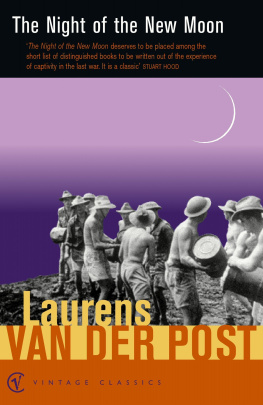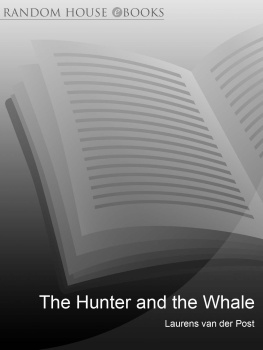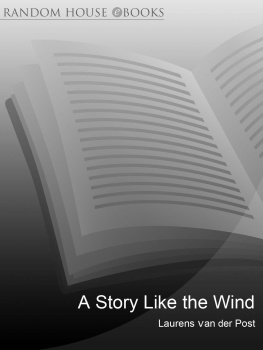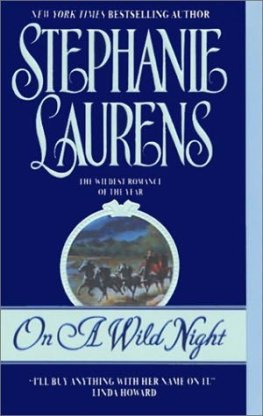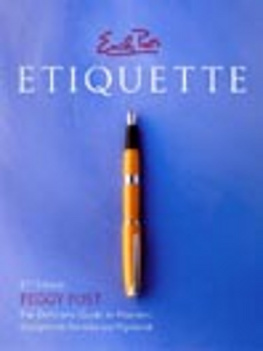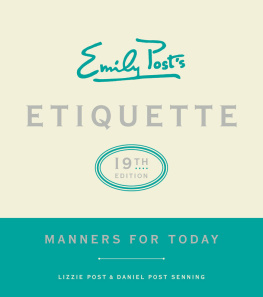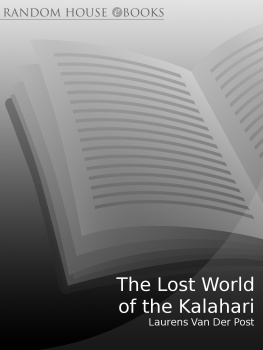van der Post - The night of the new moon
Here you can read online van der Post - The night of the new moon full text of the book (entire story) in english for free. Download pdf and epub, get meaning, cover and reviews about this ebook. City: London, year: 2002, publisher: Vintage Digital, genre: Romance novel. Description of the work, (preface) as well as reviews are available. Best literature library LitArk.com created for fans of good reading and offers a wide selection of genres:
Romance novel
Science fiction
Adventure
Detective
Science
History
Home and family
Prose
Art
Politics
Computer
Non-fiction
Religion
Business
Children
Humor
Choose a favorite category and find really read worthwhile books. Enjoy immersion in the world of imagination, feel the emotions of the characters or learn something new for yourself, make an fascinating discovery.
- Book:The night of the new moon
- Author:
- Publisher:Vintage Digital
- Genre:
- Year:2002
- City:London
- Rating:4 / 5
- Favourites:Add to favourites
- Your mark:
- 80
- 1
- 2
- 3
- 4
- 5
The night of the new moon: summary, description and annotation
We offer to read an annotation, description, summary or preface (depends on what the author of the book "The night of the new moon" wrote himself). If you haven't found the necessary information about the book — write in the comments, we will try to find it.
The night of the new moon — read online for free the complete book (whole text) full work
Below is the text of the book, divided by pages. System saving the place of the last page read, allows you to conveniently read the book "The night of the new moon" online for free, without having to search again every time where you left off. Put a bookmark, and you can go to the page where you finished reading at any time.
Font size:
Interval:
Bookmark:
Laurens van der Post was born in South Africa in 1906, the thirteenth of fifteen children in a family of Dutch and French Huguenot origins. Most of his adult life was spent with one foot in Africa and one in England. His professions of writer and farmer were interrupted by ten years of soldiering in the British Army, serving with distinction in the Western Desert, Abyssinia, Burma and the Far East. Taken prisoner by the Japanese, he was held in captivity for three years before returning to active service as a member of Lord Mountbattens staff in Indonesia and, later, as Military Attach to the British Minister in Java.
After 1949 he undertook several official missions exploring little-known parts of Africa, and his journey in search of the Bushmen in 1957 formed the basis of his famous documentary film and book The Lost World of the Kalahari . Other television films include All Africa Within Us and The Story of Carl Gustav Jung , whom he met after the war and grew to know as a personal friend. In 1934 he wrote In a Province , the first book by a South African to expose the horrors of racism. Other books include Venture to the Interior (1952), The Heart of the Hunter (1961), and A Walk with a White Bushman (1986). The Seed and the Sower was made into a film under the title Merry Christmas, Mr Lawrence , and, more recently, A Story Like the Wind and A Far-Off Place were combined and made into the film A Far-Off Place .
Sir Laurens van der Post was awarded the CBE in 1947 and received his knighthood in 1981. He died in 1996.
ALSO BY LAURENS VAN DER POST
In a Province
Venture to the Interior
The Face Beside the Fire
Flamingo Feather
The Dark Eye in Africa
The Lost World of the Kalahari
The Heart of the Hunter
The Seed and the Sower
Journey into Russia
The Hunter and the Whale
A Story Like the Wind
A Far-Off Place
A Mantis Carol
Jung and the Story of our Time
First Catch Your Eland
Yet Being Someone Other
A Walk With a White Bushman
About Blady: A Pattern Out of Time
The Voice of the Thunder
Feather Fall
For Nick
the Wing-Commander W. T. H. Nichols of this story, because without him and his steadfastness there might have been neither story-teller nor story to tell.
N EW M OON
Wi the auld moon in her arm

All the illustrations in this book are drawings made during the early months of imprisonment under the Japanese at Bandoeng in Java. Nichols and I, who had come to it with our men from confinement in far grimmer circumstances at a place called Soekaboemi the name for us always was profoundly ironical because it means the desired earth were to look back on our first term in Bandoeng as the golden age of our captivity. The Japanese, surprised by the speed and extent of their conquests in South-East Asia, had not yet had time to develop a definite prisoner-of-war policy, nor to create a special prisoner-of-war administration. We were, to start with, at the haphazard mercies of the Japanese fighting forces and brutal as their treatment of us could be, they were better than the special prison administration which was set up later, run as it was by inferior officers and warrant officers in command of fanatical Korean guards. We suffered on the whole under the Koreans more than we had done at the hands of regular Japanese troops.
Above all, the Japanese army, whose business was war, quite apart from despising us for having allowed ourselves to fall into their hands alive, took only a spasmodic interest in us. Between blitzes, as we called their periodical outbursts against us, there were long periods in which we were left comparatively free to regulate our own affairs within the walls of our prison. Had it not been for those casual months at Bandoeng, I do not believe we would have come out of prison either as well as we did or for that matter alive. Those months of comparative neglect, in the military sense, gave Nichols and myself time to organize ourselves in the manner I describe in the main story that follows.
It enabled me, for instance, to develop a system of contact with my Chinese friends outside, who just on my spoken word that the British Government would pay them back after the war, lent me vast sums of money to supplement our criminally inadequate diet. We both knew that our Bandoeng fortunes could not last and that by far our best investment was in proteins and cereals, to make our men as fit as possible for what we knew were long lean years ahead. But we both knew too that men, particularly the men from the British Commonwealth that we had with us, could not live by rice alone and that they had other kinds of hunger as much in need of satisfying.
We created accordingly a vast prison organization for the re-education of ourselves, a sort of prison kindergarten, school, high school, technical college and university rolled in one. At one end of the scale we had a British officer, Major Pat Lancaster of the Fourth Hussars, teaching a couple of splendid Australians from the Never-Never of their country to read and write. At the other end was Don Gregory a don from Oxbridge but committed to war as an erk in the Royal Air Force coaching people for their bachelor and master of arts degrees. We had an active school of drama, as active a school of music and an extensive faculty of arts and crafts. The whole of this side of our life in prison was one of my special responsibilities, since Nichols, as the Senior British Officer, had his hands over-full already in dealing with the administration of the camp and, above all, the exacting Japanese. But the person on whom this, for us, vast and creative prison edifice was well and truly founded, was a remarkable scholar of French, a sensitive Welshman of great quality and imagination, called Gunner Rees, M.A. Nichols and I gave him the prison title of Director of Education, and I can only say that I wish he were Director of Education in Britain today.
The arts and crafts faculty of this university, which attracted almost as many Dutch, Menadonese, Ambonese and Chinese prisoners to it as British, was very dear to Rees and it owed a great deal to him. At the same time he helped me more than I can say to make our prison schoolmasters, professors and artists aware of the fact that one of their main functions was to keep alive in our men their sense of continuity. The greatest psychological danger threatening men in the conditions of imprisonment we had to endure, was the feeling that imprisonment was a complete break with their past and totally unconnected with their future lives. This danger we overcame in such a triumphant manner that, with exceptions which I could count on the fingers of one hand, imprisonment for our men was transformed from an arid waste of time and life into one of the most meaningful experiences they had ever known.
In order to encourage in particular this vital sense of continuity in our prison camp, our arts and crafts faculty was charged with the duty of collecting material for making a memorial book, which we intended to publish at the end of our imprisonment. Dutch, English and Australian artists were encouraged to draw and paint anything which they thought memorable, for illustration in the book. The portraits and pencil illustrations in this book are all part of the work they did.
So Plate 1, the portrait of Wing-Commander W. T. H. Nichols, was done by Sid Scales, a New Zealand officer in the Royal Air Force and a Catalina reconnaissance pilot in South-East Asia. He was an unusually gifted draughtsman with a particular aptitude for caricature. This portrait of Nichols was one of a series of cartoons he did for us under the heading of Campicatures.
Font size:
Interval:
Bookmark:
Similar books «The night of the new moon»
Look at similar books to The night of the new moon. We have selected literature similar in name and meaning in the hope of providing readers with more options to find new, interesting, not yet read works.
Discussion, reviews of the book The night of the new moon and just readers' own opinions. Leave your comments, write what you think about the work, its meaning or the main characters. Specify what exactly you liked and what you didn't like, and why you think so.

